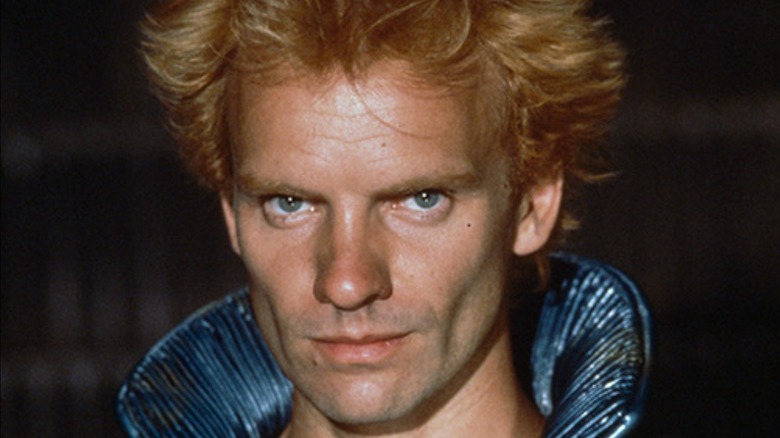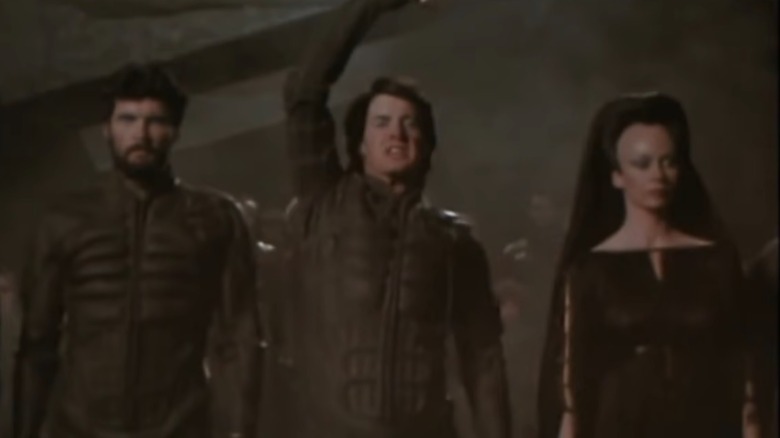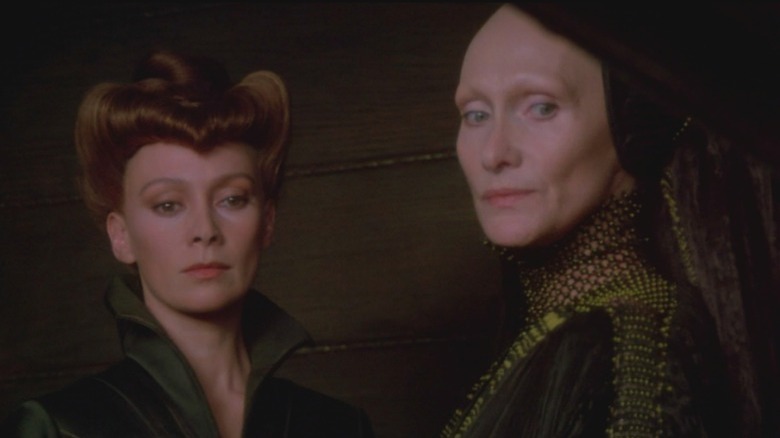Why David Lynch's Dune Bombed At The Box Office
Director Denis Villeneuve's "Dune" proved to be a bonafide hit. The film received solid reviews from critics and the $402 million global box office haul it earned by the time it left theaters is no small feat considering it was released during the COVID-19 pandemic. In fact, the big-budget blockbuster did so well that a sequel has now officially been given the green light and is well on the way to cinemas.
On one hand, that might not be too much of a surprise. The movie is, after all, adapted from one of the best-loved sci-fi novels of all time. It's a blockbuster on a massive scale featuring cutting-edge effects and a cast full of talent. On the other hand, though, "Dune" has a well-earned reputation as being an immensely challenging book to bring to the big screen. The avant-garde filmmaker Alejandro Jodorowsky famously attempted to mount a production in the 1970s. That version never came to fruition and it wasn't until 1984 that a big-budget feature-film adaptation arrived. When it did, though, it wasn't exactly the triumph fans of the novel might have been hoping for.
The 1984 version of "Dune" was the third feature film directed by David Lynch and it boasted a huge budget and a cast of entertainment's biggest stars at the time, such as Patrick Stewart, Oscar-winner Linda Hunt, Sting, and Kyle MacLachlan in his film debut. Despite all that, however, the movie was also a massive box office flop. Here's why.
Critics lambasted David Lynch's Dune
When "Dune" hit theaters in 1984 it raked in nearly $31 million at the global box office against a $40 million budget (via Box Office Mojo), thus cementing its reputation as a bomb. And while there's not always a clear and easy explanation for why some movies fail at the box office, in the case of "Dune," it seems pretty obvious that the negative press the film got played a significant role.
"Dune" did not fare well with critics when it was released, as evidenced by its 44% Rotten Tomatoes score (keep in mind that some reviews counted there came out after the movie's initial run). In a one-star review from the time of the movie's release, Roger Ebert wrote, "This movie is a real mess, an incomprehensible, ugly, unstructured, pointless excursion into the murkier realms of one of the most confusing screenplays of all time."
For many critics, the novel's epic scope and intricate worldbuilding had translated to a film that was confusing, frustrating, and downright not enjoyable. In her review for the New York Times, Janet Maslin called the movie's narrative "perilously overloaded" and said the story was "presented here much too solemnly to leave room for the wit or agility that could have made it fun."
According to Francesca Annis, it lacked strong promotion
Of course, it takes more than just poor word of mouth to make a film struggle in the financial department. If a studio wants could-be moviegoers to check out a new feature, said feature has to be promoted in some form or fashion to get the masses interested. Sure, "Dune" received trailers and posters to drum up some hype, but even one of the actors in the film has noted that the cast and crew didn't do much press work ahead of its release.
A 2021 Deadline interview with Francesca Annis, who played Lady Jessica in David Lynch's "Dune," illuminates this potential contributing factor to the film's failure. When asked about what kind of press she did for the film, the actor gave a pretty telling response. "I don't remember any huge junkets or anything ... they must have known way before it came out that it was in trouble," Annis told the publication. Thus, it's fair to say that advertising for "Dune" was pretty weak.
As for the question of why David Lynch's "Dune" was a box office bomb, it looks like the classic combination of bad reviews and poor marketing is the answer.


